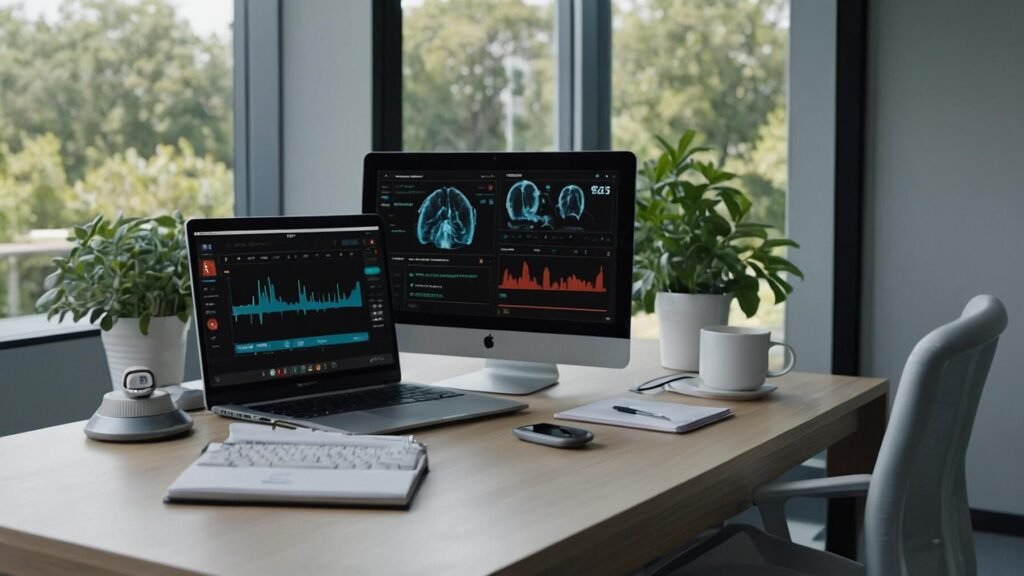
When is a Virtual Neurologist Appointment Appropriate?
Telemedicine has revolutionized the way patients access healthcare, and neurology is no exception. Virtual neurology consultations have become increasingly popular, especially in the wake of the COVID-19 pandemic, which has highlighted the need for improved health care access. Offering a convenient and accessible alternative to traditional in-person visits, telehealth has made it easier for patients to receive expert neurological care from the comfort of their own homes. In this article, we’ll explore when a virtual neurology consultation is appropriate, the benefits it offers, and the factors you should consider before opting for a telehealth appointment.
What Conditions Are Suitable for Virtual Neurology Consultations?
Which Neurological Disorders Can Be Managed Through Telehealth?
- Epilepsy – Virtual consultations allow neurologists to review seizure patterns, adjust medication, and monitor progress.
- Multiple Sclerosis (MS) can also be managed effectively through telemedicine services. – MS patients benefit from remote check-ins for symptom management and treatment adjustments.
- Migraines can be assessed and managed through virtual neurologic consultations, allowing neurologists to prescribe treatment effectively. – Regular virtual consultations can help track the frequency and severity of migraines, as well as medication efficacy.
- Parkinson’s Disease – Telehealth consultations provide valuable opportunities for regular monitoring and medication adjustments in a virtual neurologic setting.

What Are the Limitations of Virtual Neurological Exams?
When to Choose an In-Person Neurology Visit Over Virtual Care
While virtual consultations are incredibly useful for many neurological conditions, there are times when an in-person visit is necessary for proper diagnosis and treatment.
How Is a Virtual Neurological Exam Different from an In-Person Exam?
Techniques Used in Remote Neurological Assessments
Challenges in Virtual Neurological Examinations

What Are the Advantages of Telemedicine in Neurology?
What Are the Benefits of Virtual Neurology Consultations for Patients?

When Should Patients Choose In-Person Neurological Care Over Telehealth?
How Has the COVID-19 Pandemic Affected Virtual Neurology Consultations?
Increased Adoption of Telemedicine in Neurology
Changes in Insurance Coverage for Virtual Neurological Care
Long-Term Impact on Neurological Telehealth Services
What Technology Is Required for an Effective Virtual Neurology Consultation?
- A device with a camera and microphone (smartphone, tablet, or computer)
- A stable internet connection to ensure clear video and audio
- A well-lit and quiet environment to minimize distractions
What Platforms Do Neurologists Use for Virtual Consultations?
How Is Privacy and Security Ensured in Virtual Neurology Consultations?
Virtual neurology care makes it easier than ever to connect with a specialist quickly, conveniently and from the comfort of your home. While some conditions may still need in-person attention, many neurological concerns can be effectively addressed through telehealth.
Ready to take the next step? You can call us at 678-536-1753 or book your virtual consultation appointment today and get the expert care you deserve.
Stay informed with expert insights on neurology, treatments, and wellness. Browse our latest articles to discover valuable tips, research updates, and expert advice on neurological health.
What to Expect During a Virtual Neurology Consultation As the...
Read MoreHow Online Neurologists Provide Legal Reports for Injury Claims
How Online Neurologists Provide Legal Reports for Injury Claims Neurologists are...
Read MoreBenefits of Virtual Neurology Consultations for Injury Victims
Benefits of Virtual Neurology Consultations for Injury Victims When someone...
Read MoreSymptoms That Require a Neurology Consultation After an Auto Accident
Symptoms That Require a Neurology Consultation After an Auto Accident...
Read More


